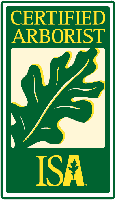 Are you an arborist? I get asked that question almost every day. I then reply, “Yes, I consider myself an arborist. I am a New Jersey Certified Tree Expert.” The homeowner then responds, “but are you an arborist?”. I would then have to spend 20 minutes explaining what I am and how it ranks compared to being an arborist. When in reality, the word “arborist” is a general term meaning a tree specialist. The word has no credential behind it, unless you say your a “Certified Arborist”. The ISA or International Society of Arboriculture, is a organization that “Certifies” arborists. So how does being an ISA Certified Arborist stack up compared to being a New Jersey Certified Tree Expert. I hope to explain that question in the coming paragraphs.
Are you an arborist? I get asked that question almost every day. I then reply, “Yes, I consider myself an arborist. I am a New Jersey Certified Tree Expert.” The homeowner then responds, “but are you an arborist?”. I would then have to spend 20 minutes explaining what I am and how it ranks compared to being an arborist. When in reality, the word “arborist” is a general term meaning a tree specialist. The word has no credential behind it, unless you say your a “Certified Arborist”. The ISA or International Society of Arboriculture, is a organization that “Certifies” arborists. So how does being an ISA Certified Arborist stack up compared to being a New Jersey Certified Tree Expert. I hope to explain that question in the coming paragraphs.An ISA Certified Arborist is a person who takes, and passes the ISA Certified Arborist Exam. The exam is a written one and all the questions are multiple choice. There are no minimum requirements to take this test, except for being a member of the International Society of Aboriculture. The exam tests on tree biology, basic tree identification, soil, water management, tree nutrition and fertilization, tree selection, proper planting procedures, tree pruning, tree support systems, basic plant disorders, Plant Health Care (PHC), basic tree risk management, and safety. The exam requires a 72 to pass, and I’ll be the first to tell you that it is no walk in the park.
 A New Jersey Certified Tree Expert has a lot more riding on their shoulders. To start, in order to take this exam you must meet minimum requirements. The short version of the requirements are; a person who has worked in the tree care industry for five years and is of good moral character, having a four year college degree in forestry or horticulture and is of good moral character, or have a two year degree in forestry or horticulture and two years experience working in the tree care industry. If the person taking the test meets those minimum requirements, the board of Certified Tree Experts then has to approve them.
A New Jersey Certified Tree Expert has a lot more riding on their shoulders. To start, in order to take this exam you must meet minimum requirements. The short version of the requirements are; a person who has worked in the tree care industry for five years and is of good moral character, having a four year college degree in forestry or horticulture and is of good moral character, or have a two year degree in forestry or horticulture and two years experience working in the tree care industry. If the person taking the test meets those minimum requirements, the board of Certified Tree Experts then has to approve them.If they make it past the requirements, the test should be a breeze, right? Not at all. The test consists of two sections. The first part is a field exam. The field exam requires test takers to correctly identify 25 trees selected at random with their common name, Genus and Specific epithet. After the tree is identified the testee gives recommendations on what to do with the tree. Should the tree be removed ? Does the tree have a disease ? Is the tree in good health and no action is needed ? Those are just some simple questions the testee should try to answer. Only five minutes are given at each tree to answer all those questions.
The second part is a written exam consisting of 295 multiple choice, fill in the blank (with no word bank), true false, and open ended questions. The questions can ask anything from tree biology, to proper planting procedures, or my personal favorite, name five reasons to add an adjuvant to a spray tank. Both portions of the exam are three hours long, giving the total exam time to be six hours. The testee needs to achieve a 72 on each portion of the exam to pass.
Being a New Jersey Certified Tree Expert (CTE) is great as long as you never leave the state. The state designates the exam, and the state recognizes the credential. Unfortunately, NJ does not recognize the ISA Certified Arborist credential, because it is not designated by the state. I am not bashing on the ISA credential at all. I am merely trying to explain the differences. The ISA is a great organization and has made enormous contributions to the tree care industry. I do believe that being an ISA Certified Arborist is a great stepping stone to higher education. Hopefully in the future all “arborists” will require this certification at minimum. In New Jersey, being a CTE is the highest level you can be.